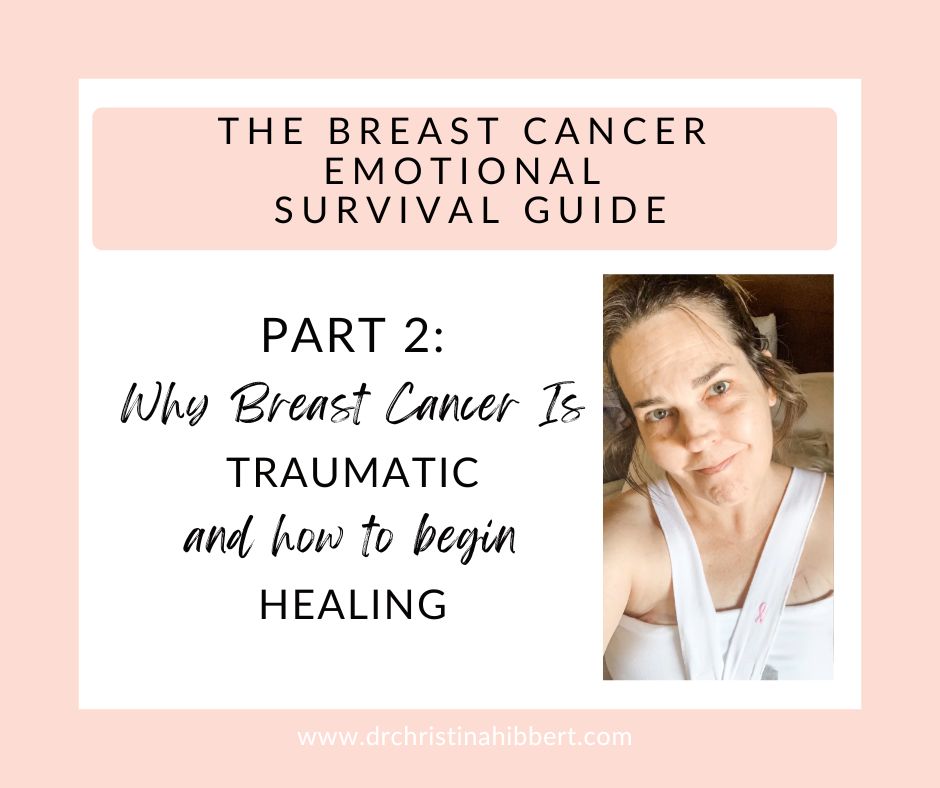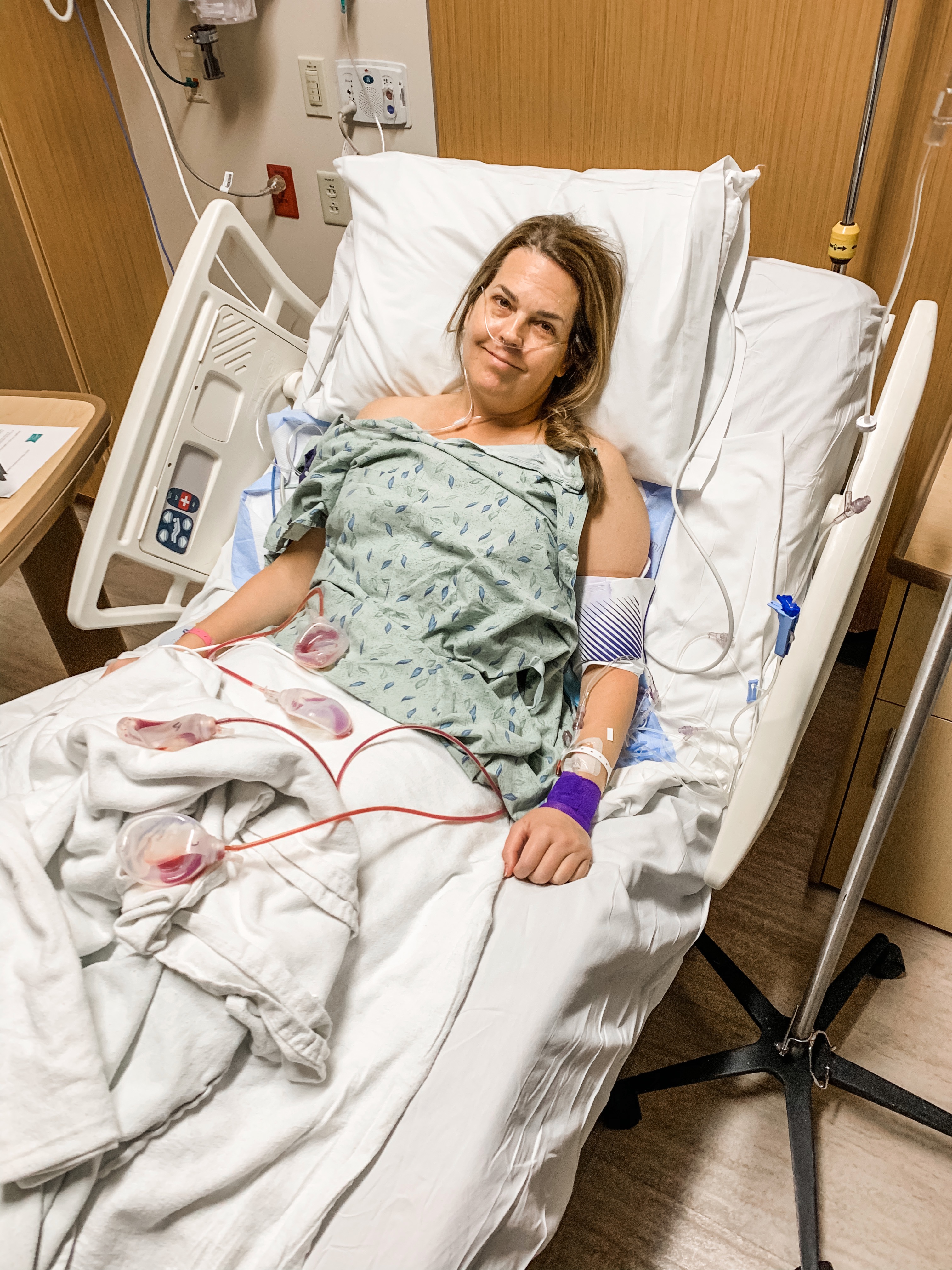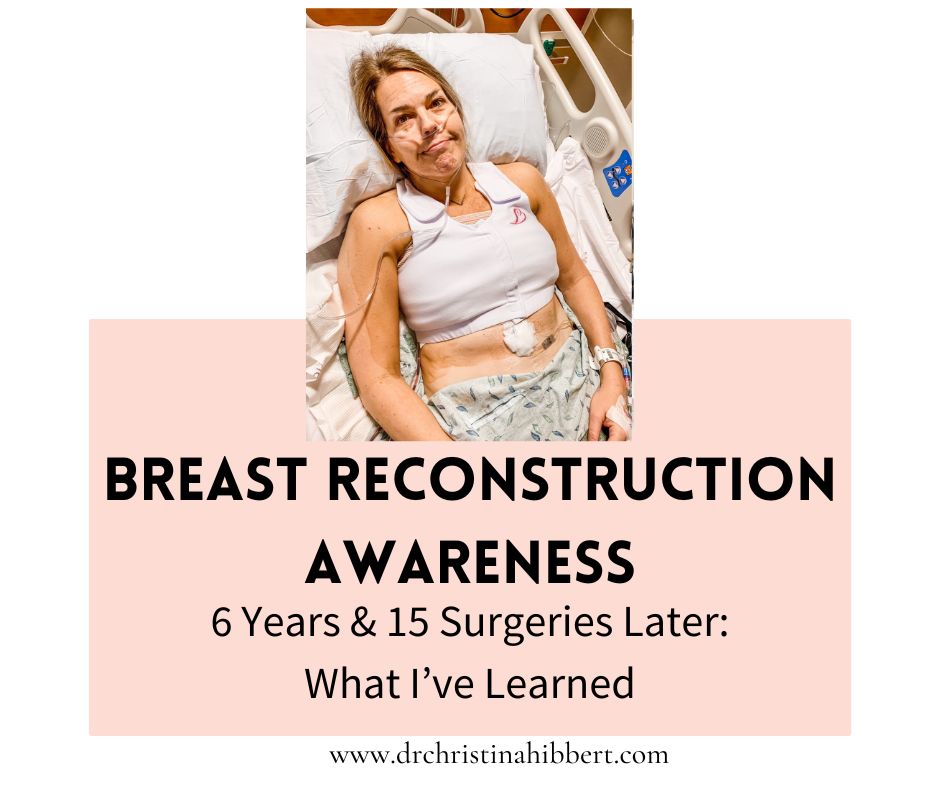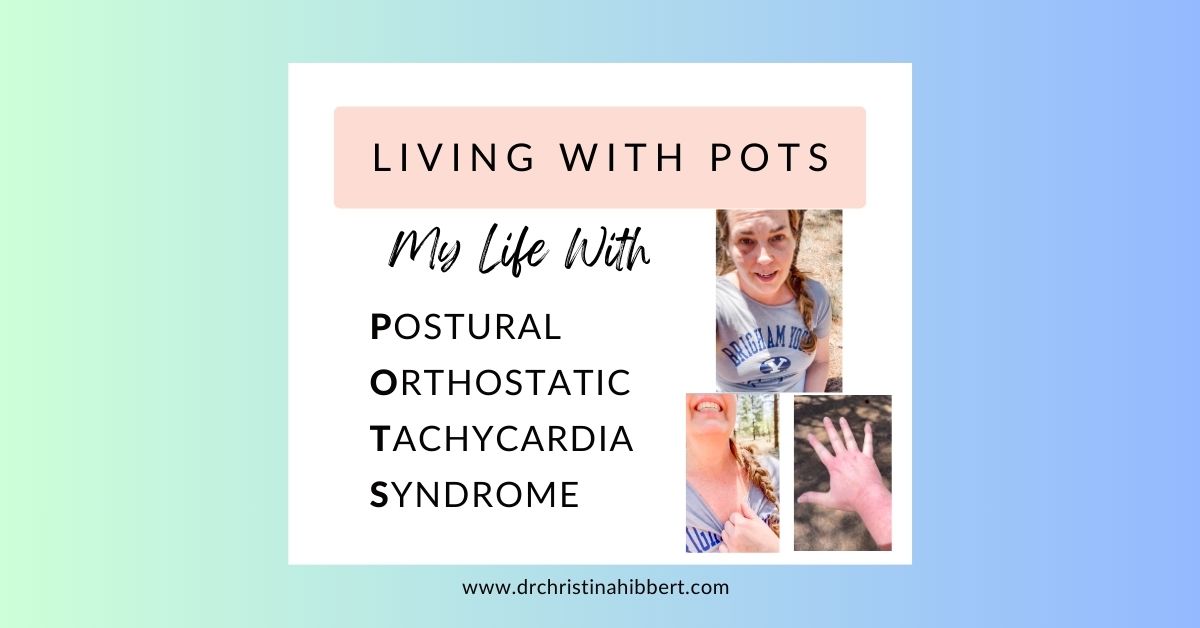When most people hear the word “trauma,” they don’t think of breast cancer. I didn’t, until it was me–going through cancer treatment including chemotherapy, complication after complication, and 15 total surgeries. Now, I can’t separate the two. Because trauma isn’t just accidents, abuse, war, or natural disasters.
Because breast cancer is trauma.
From the moment you hear, “I’m sorry, but it is cancer,” your world is split in two. Before Cancer (BC) and After Diagnosis (AD). That moment is traumatic in itself.
But what follows—the surgeries, chemo, radiation, endless scans, changes to your body, chronic conditions, plus the anxiety, stress and fear of it all—can leave deep emotional wounds for which most of us are not prepared.
I Knew breast cancer Would Be Hard. I Had No Idea How Traumatic.
Even though I’m a clinical psychologist, even though I knew it would be mentally and emotionally tough to go through breast cancer, and even though I put myself into therapy the moment I was diagnosed, I still had no clue how traumatic it would all be for me personally.
Chemo was brutal. Cold capping to try to save my hair was a blessing, and exhausting. But the surgeries… I went through 15 surgeries in just five years, 13 of those in the first year and a half. That alone was traumatizing—being wheeled into operating rooms all alone (during COVID), having parts of me amputated (double mastectomy), transplanted (DIEP Flap reconstruction), pulled apart (strangulated hernia), and rearranged, all to be stitched back together like a torn and broken doll.
Still, I didn’t recognize it as TRAUMA. I thought this was just “what you do.” I thought I was coping, and I was…until I wasn’t.
It wasn’t until months later, after those first 13 surgeries were complete, that it hit me like a semi: I have been traumatized. This is PTSD.
I knew acknowledging the trauma was key to beginning to work through the trauma. And I knew I needed to do the trauma work if I was ever going to heal.
Watch my speech on “Breast Cancer Trauma, PTSD, & What We Can All Do”, here or below.
Many Women Don’t Even Know They’ve Been Traumatized
And here’s the hard part for all of us: even knowing it’s trauma, it can be tough to figure out where to begin.
Trauma work is messy. It’s layered. And when you’re still in survival mode, it can feel impossible to face.
But so many women don’t even get to the realization that they’ve been traumatized. They don’t know that the panic before a scan, the nightmares, the flashbacks, the feeling of being unsafe in their own body—those are trauma symptoms.
No one tells them.
That’s why, in 2020, a few months after those surgeries, in the middle of COVID, when I couldn’t find the support I needed, I started my own online breast cancer support group. I thought it would help me—and it did—but what shocked me was what I heard from other women.
Women who’d been living with breast cancer trauma for five years, ten years, twenty, even thirty years were asking me: “Why didn’t anyone ever tell me I was traumatized? Why did one ever explain that I have PTSD?”
That’s why talking about this is so important.
Not to scare anyone, but to shine light on the truth: most women with breast cancer experience it as trauma.
And when you’ve experienced trauma, whether you develop PTSD symptoms or not, you will therefore need trauma-informed healing.
PTSD in Breast Cancer Survivors
This isn’t just anecdotal. Research confirms it.
One important study found that 82.5% of women with breast cancer showed at least one PTSD symptom between diagnosis and the start of treatment—even before the chemo, radiation, or surgery began (COGNICARES study, PubMed).
Not all developed full PTSD—but the fact that 4 out of 5 women had symptoms even before the bulk of the trauma occurred proves the point: breast cancer is traumatic.
If you’ve felt panic, dread, flashbacks, had nightmares, been triggered, or experienced hypervigilance, emotional numbness or avoidance behaviors, you’re not “crazy” and you’re not weak.
Immediately after my biggest reconstruction surgery (9 hours long)–DIEP Flap. Done during COVID, so no visitors.
What Trauma Looks Like After Breast Cancer
- Flashbacks to diagnosis day, treatment, or surgery
- Dread before scans (what many call “scanxiety”)
- Nightmares, insomnia, or waking up panicked
- Feeling constantly on edge, jumpy, or emotionally numb
- Avoiding medical settings—or avoiding thinking about cancer at all
- Struggling with grief, anger, guilt, or shame
If any of this sounds familiar, know this: it’s not your fault. It’s not weakness. It’s trauma.
Where Healing Begins
Healing from trauma doesn’t mean erasing what happened. It means integrating it, carrying it differently, finding ways to let it shape you without destroying you. Here’s where to begin:
- Therapy: Trauma-focused therapy (EMDR, somatic therapy, Internal Family Systems, Ketamine-Assisted Psychotherapy) can help your brain and body process what happened and create new connections to your experiences.
- Support groups: Honest community is healing. Finding others who get it is one of the most powerful antidotes to trauma.
- Grief work: Give yourself permission to mourn what cancer took away.
- Creative outlets: Journaling, art, music, movement—safe places to let pain live outside your body.
- Body-based practices: Gentle yoga, breathwork, grounding, nature. These teach your nervous system it’s safe again.
- Small safety rituals: Little things—candles, soft or weighted blankets, mantras like “I am safe right now.” They matter.
- Connection: Don’t do this alone. Trauma thrives in isolation. Healing happens in relationship.
Why Trauma Matters to Emotional Survival
This series is called the Breast Cancer Emotional Survival Guide for a reason. Trauma is at the root of so much of what we feel after cancer: the depression, the anger, the loneliness, the fear of recurrence.
Unless we name the trauma, we’ll always be chasing symptoms.
When we face the trauma—when we name it, honor it, and work with it—we start to heal.
Not in a neat, perfect, linear way. But in a real, human, survivable way.
Call to Action: Join Me on the Journey
If this resonated with you, you’re not alone. I’ll be sharing more on depression, grief, anger, loneliness, fear of recurrence, and the chrysalis of transformation in the coming articles of this 10-part Breast Cancer Emotional Survival Guide series.
I’d love to walk this path with you.
Subscribe below to receive early access to new posts, emotional survival tools, and exclusive bonuses from my forthcoming book Reluctant Warrior: A Breast Cancer Memoir & Emotional Survival Guide.
Because no one should have to face the trauma of breast cancer alone. My hope is that, together, as we are honest and real and seek the tools to heal, none of us will have to.




